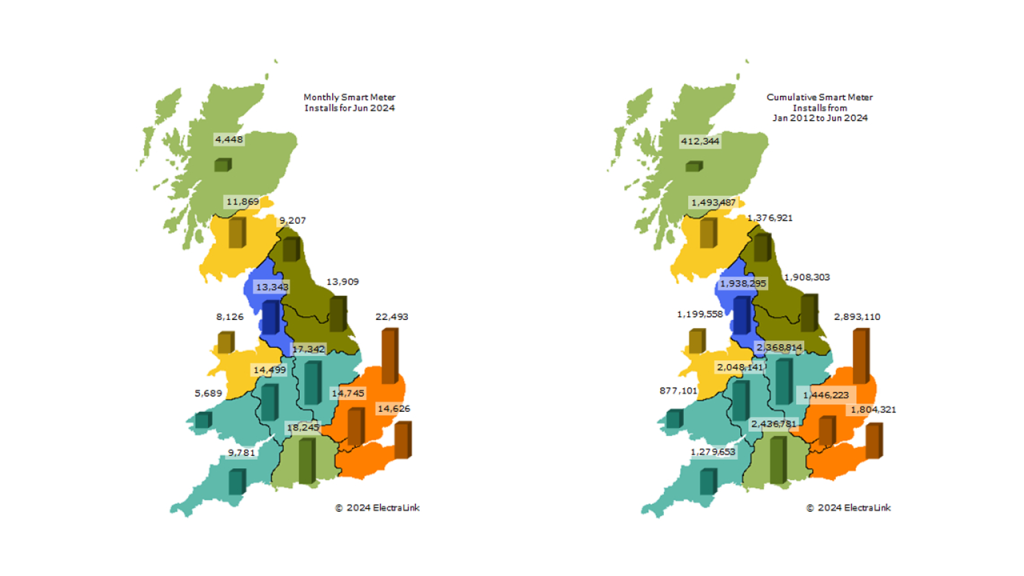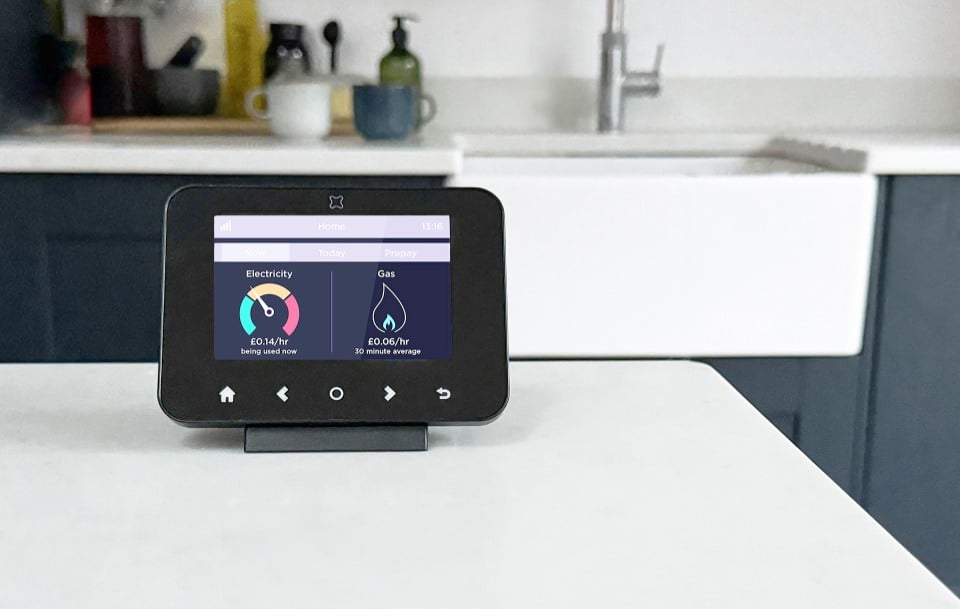The latest data from ElectraLink has revealed that UK-wide smart meter installations have had a surprising rise in July, with 30,000 more meters installed than the previous month.
Smart meter installations hit 208,000 last month, 17% more than June 2024’s figure and only slightly less than July 2023’s 210,000 installations. So far this year, smart meter installations have reached 1.39 million, a little ahead of the 1.36 million installations completed between January and July 2023.
The top three UK regions for smart meter installations last month were east England with 27,000 installations, southern England with 21,000, and the east Midlands with 20,000. These three regions also topped the ratings the previous month.

The increase in smart meter uptake bucks the previous trend of falling rates. ElectraLink statistics released last month show that smart meter installations have fallen by 15% year on year.
Data from the Department of Energy Security and Net Zero (DESNZ) released at the end of May this year revealed that 35.5 million smart and advanced meters were in operation in homes and small businesses throughout the UK, with 62% of all electricity meters now using the latest technology. The next quarterly update to these figures is due to be released by DESNZ on 29 August.
UK is falling behind on smart meters
Recent projections from research firm LCP Delta have revealed that the UK is far behind many EU nations on smart meter rollout.
While the UK has made far more progress than Germany on smart meter uptake, Italy, France and Spain have significantly higher rates of installations. While multiple reasons have been suggested for this, including the UK’s small number of qualified smart meter installers, much of the success of the EU rollout has been put down to legal mandates for smart meter installation.
Unlike the UK, where the smart meter programme has been largely retailer-led, Spain, Italy, and France have government-mandated rollout programmes. Germany has recently introduced its own smart meter mandate, with uptake expected to increase as a result.






